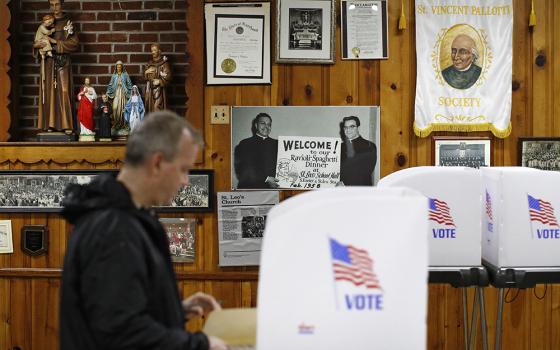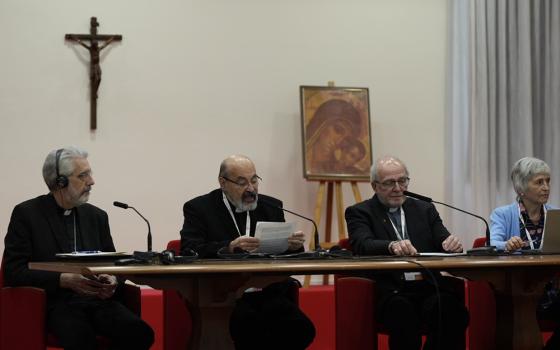From my standpoint, I'm glad that I absorbed as much original sin theology before being swept up in the human potential movement that made us and Jesus into unalloyed positivity. It helps at times like this when the sharp edges of personal and national life protrude so ominously.
Among the reasons I was drawn to the Psalms is that they repeatedly decry evil deeds and predict the demise of the perpetrators. The promise is addictive though rarely fulfilled in my experience. Media has magnified the scope of malevolence more than at any time in history whether or not it's actually more pervasive than ever. The Psalms are glorious but I still wait for evidence that the other shoe has dropped, that the captains of greed, hatred and domination have been shown the door.
Why, indeed, if the meek are told they will inherit the earth, do the brazen and heartless so regularly run it? Perhaps the default answer is that it's a mystery. But the language is pretty concrete. The God of the Psalms and the Prophets flatly pledges to stamp out the villains in order to lift the boot from the neck of the persecuted. The crushed ones are often left in the lurch, however. Why? cries the oppressed.
That has perpetuated a strain of perplexity within Western religion. When will vindication come, assuming, perhaps falsely, that we are on the right side in this transaction, and what can religious people do to hasten its arrival? It is a cause of doubt about God's existence and/or intentions -- on the other hand, would believers recognize rescue in the fashion in which arrived? Is suffering a necessary prelude to vindication or a state of being mocked by an empty promise?
Syria poses the wrenching dilemma. Where is divine justice. Christians revert to stock explanations. There is the "God's in charge" sector that counsels a strange passivity; the patriarchal urge to straighten things out with a heavy hand; the "stop-it" howl of desperation; and those who see it as a precursor to Armageddon, to cite just three of the operating responses. Long ago the might and influence of Christianity had some power to promote peace. But that impact has effectively vanished.
Words are still used by religious leaders to call the world to order and decency. Statements decry the death and brutality in the Syrian theater, the latest being the horrid gassing of innocents and the series of death-dealing bombings of civilians by Syria's enemies. Pope Francis, the World Council of Church, the Archbishop of Canterbury and hosts of others raise their voices in outrage and compassion. To what effect?
Words certainly matter, but the less churches can back that up with moral or even temporal authority, the less they mean. Francis eloquently appeals for mercy and justice and there is no movement on justice's scales. That doesn't indicate no influence. Individuals and groups here and there may take up the cause, it can add to a collective witness, it can resonate in memories that bear fruit. Meanwhile, it looks like the evil are prospering at will, from whichever side they prosecute this massacre, while religious leaders toss peas at tanks.
The epistle of James suggests a strategy in this kind of apparent weakness: "faith without action is dead." Substitute "words" as the expression of that faith and you have a verse that provides pungency. A church whose temporal strength is diminishing cannot rely on words to stir action. It needs to act to incarnate those words so as to leave an impression that the words shape lives.
During Holy Week, the Word becomes flesh through Jesus voluntarily submitting himself to the consequences of his witness. Had he only spoken of the new creation, he might be remembered as a world class philosopher and speculator. But he put himself in the midst of his words.
Without something like that balance of faith-words and action, the unbelieving dealers in perfidy can shrug off words as predictable but harmless shibboleths. Perhaps that might change if religious people somehow showed up to put themselves behind those words, even at risk to themselves. St. Francis talked peace and went to the Middle East to look the warring forces in the eye. Nothing appeals like a authentic faith with surpassing compassion and fearless willingness to give up security for the greater good. Lamenting poverty might mean having the courage to say so in public but also the heroism of giving up goods and privileges in the cause. Churches bewailing exploitation and at the same time divesting themselves of what protects them from standing with the exploited. Bankrolling counter movements as well as proclaiming truth to power.
It would require sacrifice, and that is hard. Gestures of good will are fine, words of inspiration and moral ideals impart value, but being summoned to risk personal security is a scary proposition. I'm much more prepared to give than to give sacrificially, yet I think that is the line beyond which we begin to understand belonging to a power greater than ourselves that can defeat evil. A long leap of faith, to be sure, and I'm far from it, but I think that's where Jesus went as an exemplar of an understanding that's just beyond our natural inclinations. The evil still prosper in that world we are wont to leave behind.








